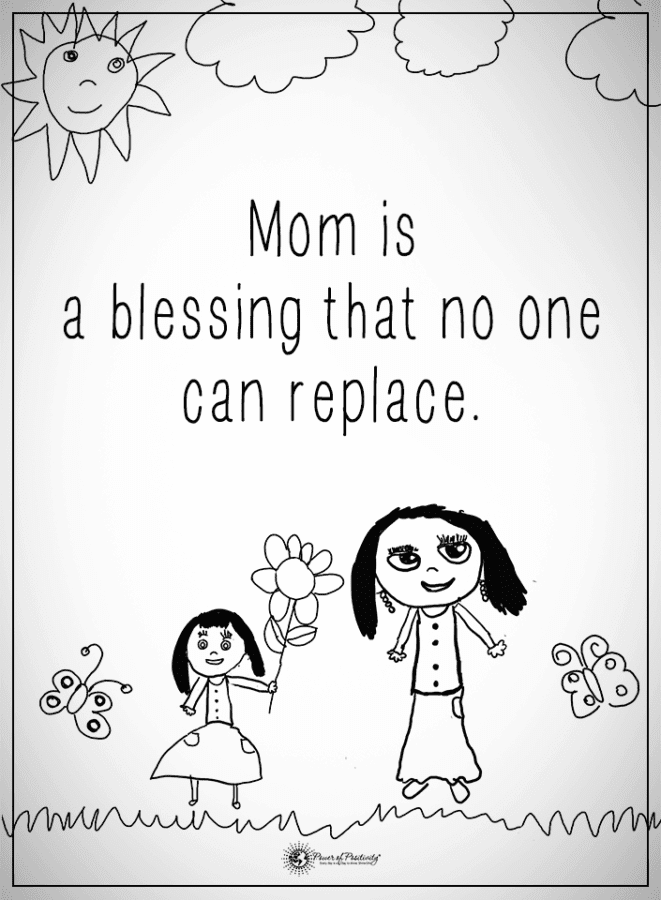The word ‘success’ is hard to define because it means different things to different people. For the purpose of this article, we’ll define success as: ‘Fulfillment of one’s potential that ultimately leads to happiness.’
You’ll notice that, while many of these studies revolve around academic achievement and financial success, there is an unmistakable relationship between the lessons taught and learned throughout childhood and happiness as an adult.
As it turns out, researchers have discovered that several childhood factors can predict one’s success as an adult. Unsurprisingly, many of these factors are related to the parent-child relationship.
Here are seven things that parents do that can influence their kid’s success, according to science:
1. They let kids be their ‘copycat’
Copycatting = Openmindedness
If your kid seems to copy everything that you do, science says that they’re more likely to be freethinkers. According to a study conducted by researchers at the University of Kwazulu-Natal in South Africa and the University of Queensland in Australia, kids who mirror mummy or daddy’s behavior may be able to read more into people’s actions and develop respect of other peoples’ cultures and way of life.
2. They don’t allow kids to watch aggressive or violent t.v.
Violent T.V. = Aggressive grown-ups
In a 2003 study published in the journal ‘Developmental Psychology,’ researchers found:
“…archival data (of 779 adults) reveal that childhood exposure to media violence predictors young adult aggressive behavior for both males and females.” The study goes on to note that children who identify with aggressive television or movie characters are more likely to be themselves overly-aggressive.
3.They display self-control
Self-control = Good adjustment
According to University of Florida professor Roy Baumeister, parents should focus more on teaching children self-esteem and self-control.
Baumeister cites a 32-year study published by the Proceedings of the National Academy of Sciences, which states that children taught self-control habits early in life are more likely to be physically healthier, financially secure, and less prone to troublemaking in adulthood.
4.They never forget the negative effects of childhood trauma
Better treatment = Better memory and emotional control
Neuroscientific studies show that people who experienced childhood abuse have worse memories and less control over their emotions.
“Any dysfunction, trauma, or abuse you experience in childhood affects you into adulthood. No one can escape from it. It’s like having an umbrella in a heavy rainstorm … No matter how big your umbrella is, some part of you is going to get wet.” ~ Tina Fuller
In a study conducted by Harvard University and published in the journal Proceedings of the National Academy of Sciences, emotional and/or sexual abuse during childhood may lead to underdeveloped areas of the hippocampus that control regulation of emotion and memory.
5.They expect more
Higher expectations = Higher levels of education
“Parents who saw college in their child’s future seemed to manage their child towards that goal irrespective of their income and other assets,” says Neal Halfon, a professor at the University of California at Los Angeles professor.
Professor Halfon cites a 6,600 participant survey of children born in 2001.
6.They give More presence than presents
More attention = More achievement
Per a 2015 study published in the journal Child Development, children who receive more attention from their parents realize higher levels of success.
University of Minnesota psychologist Lee Raby adds, “This (study) suggests that investments in early parent-child relationships may result in long-term returns that accumulate across individuals’ lives.”
7. An early (and strong) maternal connection
Maternity leave = Many successes
In the United States of America, the wealthiest country on the planet, just 12 percent of companies offer their employees paid maternity or paternity leave – an abysmal number. Worse, the country seems to be going backward in this regard: 17 percent provided the benefit in 2010.
Mountains of research continue to show that paid maternity leave offers more than a few benefits, including higher educational attainment, IQ scores, and income levels. In fact, this research has been used to try and influence policymakers.


















